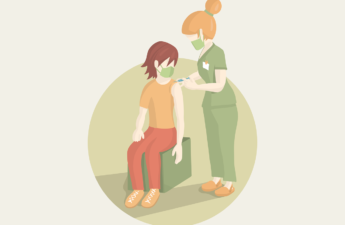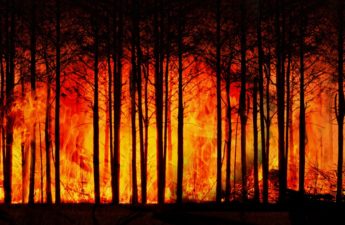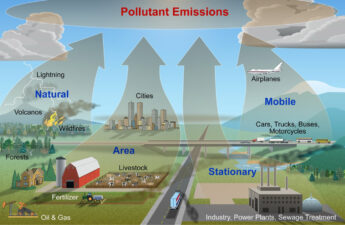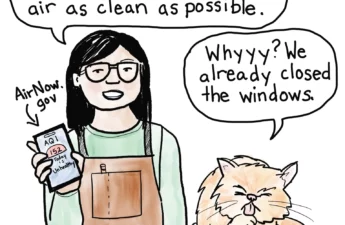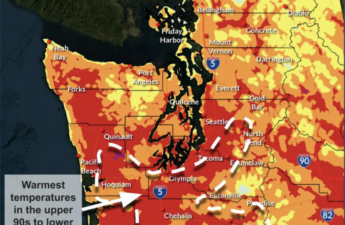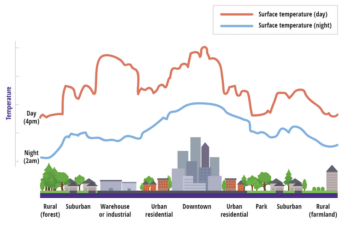Category: Environmental Health
Microplastics are in our brains. How worried should I be?
Sarah Hellewell, Curtin University; Anastazja Gorecki, University of Notre Dame Australia, and Charlotte Sofield, University of Notre Dame Australia Plastic is in our clothes, cars, mobile phones, water bottles and food containers. But recent research adds to growing concerns about…
Health News Headlines.
Price cut for weight-loss drug – US heat deaths hit record high – Back-to-school shots fall – DEET safe?
Expert: The Impact of Climate Change on Global Nutrition Is a National Security Issue
Weather events over the past several years have led to lower harvests, lost agricultural incomes and increasing food prices. All those factors contribute to increasing rates of malnutrition.
Wildfire smoke is a health risk for pregnant people — both physically and mentally
As the West’s wildfire season worsens, a new Human Rights Watch report urges policymakers to address the toll it’s taking on pregnancy and birth outcomes.
Health News Headlines
Human parvovirus is on the rise – Late-Summer Travel Plans? You Might Want to Put on a Mask – Feeling old? Your molecules change rapidly around ages 44 and 60, study says
Climate change and mental health: How extreme heat can affect mental illnesses
Many people can relate to the sleepless nights during hot summer months, as well as anecdotal experiences of irritation and aggression when thermally uncomfortable.
But for those living with mental illnesses, the hazard of extreme heat is more dire than temperamental responses to day-to-day disruptions.
CDC launches new online heat-risk resources
New Heat and Health Initiative, developed in response to increased health risks from heat exposure, aims to improve American’s ability to stay safe during heat events
What are the health costs of air pollution, and what can we do about it?
Have you ever noticed the hazy smog that hangs over cities or the lingering smell of exhaust fumes from traffic? These are just a few noticeable signs of air pollution, a threat that can have a significant effect on our health and well-being.
The Cost of Freeing Drinking Water from ‘Forever Chemicals’
In proposing the limits, EPA officials said that they had leveraged the latest science to protect the public from PFAS pollution. Environmental groups welcomed the move as long overdue. But the standard has drawn widespread criticism from the water utility industry and some scientists who say that in many places, small drops in PFAS water levels will matter little for exposure or health.
Reduce Radon for a Safer Home –
Radon is a naturally occurring radioactive gas. We can’t see it, taste it, or smell it, but it is the leading cause of lung cancer among nonsmokers in the United States. Radon is responsible for about 21,000 deaths in the United States each year.
GET READY FOR WINTER WEATHER, INCLUDING POWER OUTAGES AND ROAD CLOSURES
We’re expecting high winds and gusts starting in the early morning on Tuesday, January 9 and continuing through the day, which could take down power lines and cause outages. This weekend, January 12-14, light snow might cover roads and disrupt travel.
TIPS FOR CLEAN AIR INDOORS ON SMOKY DAYS: A PUBLIC HEALTH COMIC
Comic by Meredith Li-Vollmer from Public Health — Seattle & King County
Hottest temperatures of the year forecasted for Western Washington this week
National Weather Service issues excessive heat warning for much of Puget Sound
How to Prepare for an Early and Long 2023 Wildfire Season in King County
his year, wildfire smoke is forecast to start early in King County and last into the fall. Record-setting forest fires have already darkened skies in Canada and the eastern U.S., and our region is set to be next. By preparing now, you can help to protect your and your family’s lungs, heart, and health from smoke.
Saving lives from extreme heat: Lessons from the deadly 2021 Pacific Northwest heat wave
The 2021 heat dome was Washington’s deadliest weather disaster on record. It contributed to 441 deaths in the state between June 27 and July 3, our research shows. Medical systems were overwhelmed. There are numerous ways to avoid this deadly of an outcome in the future. Many emerge from thinking about extreme heat as long-term risk reduction, not just short-term emergency response.

